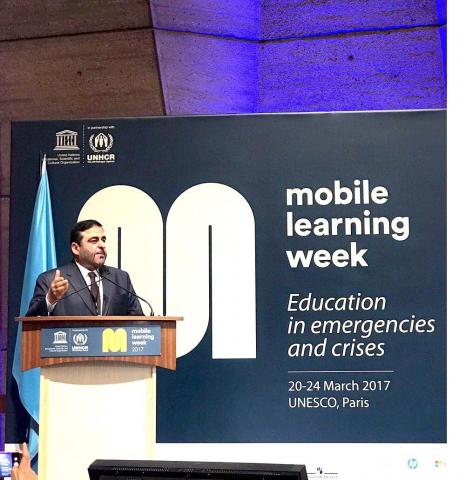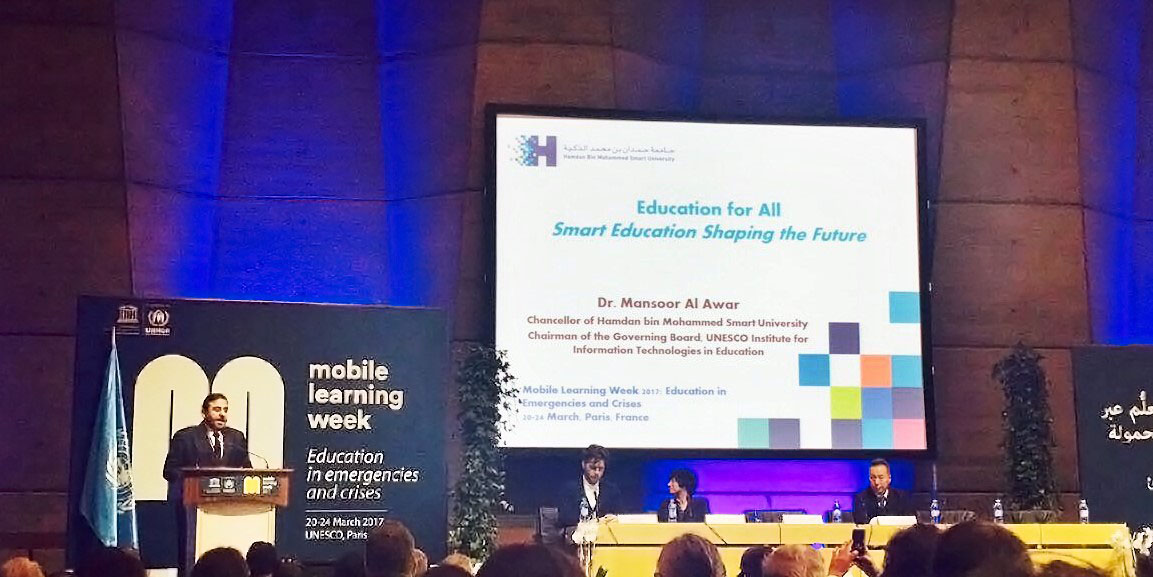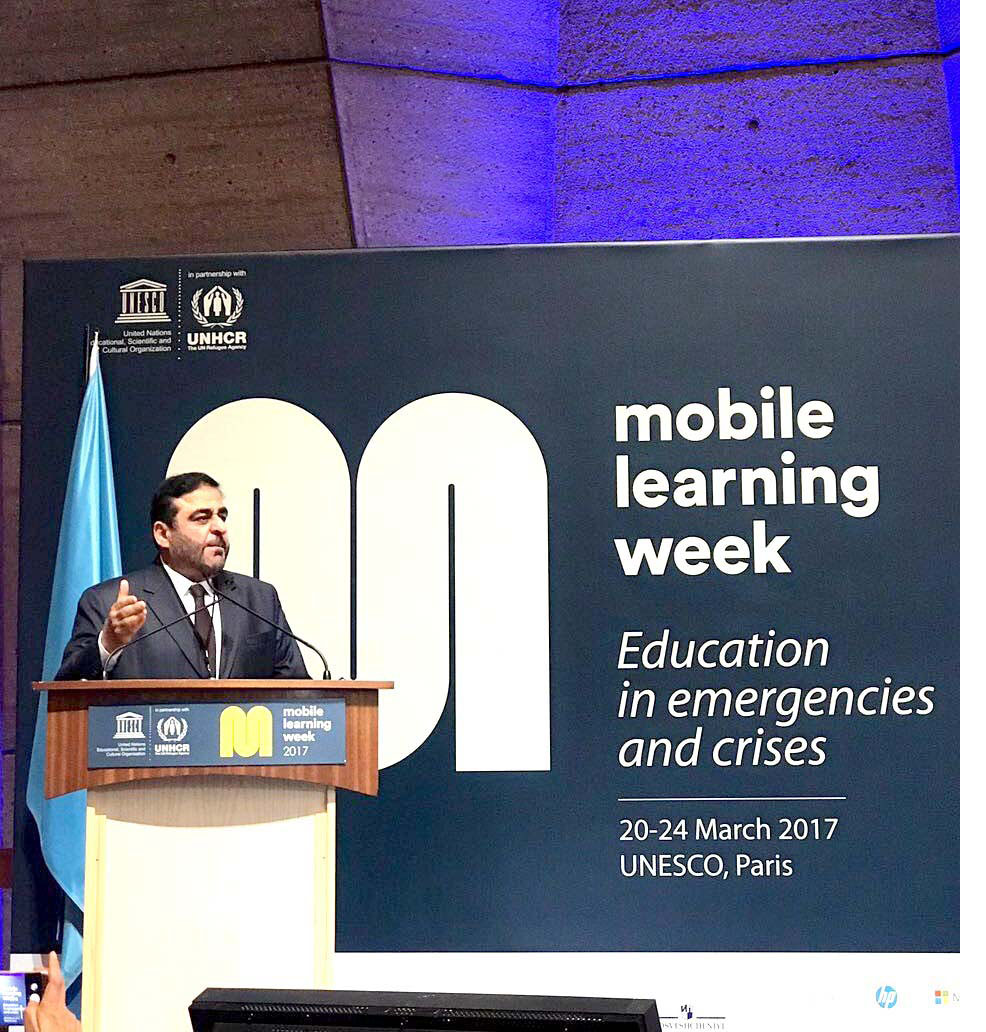
Dr. Al Awar emphasizes importance of Smart Learning in achieving Sustainable Development Goal of ‘Ensuring Equitable and Inclusive Quality Learning for All’ by 2030
Dr. Mansoor Al Awar, Chancellor of Hamdan bin Mohammed Smart University (HBMSU) and Chairman of the Governing Board of the United Nations Institute for Information Technologies in Education (UNESCO), joined an elite group of international leaders and experts participating in Mobile Learning Week (MLW) 2017 held at the UNESCO headquarters in Paris, France under the theme ‘Education in Emergencies and Crises.’ He presented an ambitious international project for providing quality learning to refugees using HBMSU’s proven innovative and ‘smart’ teaching methodologies based primarily on the Lifelong Learning Model.
Dr. Al Awar further emphasized the urgent need for concerted global efforts to address emerging challenges from the growing number of conflicts, disasters, and other human crises arising around the globe. He called on the international community to join hands in ensuring a transformational and inclusive education that brings hope for a better future and ensures the welfare and decent lives of new generations.
The Chancellor also shared how HBMSU’s best practices and successful experience have had a positive impact on learning in the Arab World in line with the wise vision of H.H. Sheikh Mohammed bin Rashid Al Maktoum, Vice President and Prime Minister of the UAE and Ruler of Dubai, and under the full supervision of H.H. Sheikh Hamdan bin Rashid Al Maktoum, Crown Prince of Dubai and President of HBMSU, to bring the UAE at the forefront in re-engineering and reshaping higher education.
He also outlined HBMSU’s roadmap for the future based on Artificial Intelligence, Augmented Reality, Cloud Computing, and the Internet of Things. He detailed the University’s educational philosophy which he explained is founded on the fundamental principles of flexibility, quality, and facilitating direct access to the best educational opportunities in a cost-effective manner. Dr. Al Awar touched on the major role played by HBMSU’s application of the Lifelong Learning Model which serves as a cornerstone for effecting positive change in the lives of people around the world and realizing the goal of the Incheon Declaration of the 2015 World Education Forum to provide lifelong learning opportunities for all.
Dr. Al Awar’s presentation on ‘Education for All: Smart Learning Creates the Future’ provided in-depth insights on the role of smart learning in reshaping the future and providing education for everyone in keeping with the UN’s Sustainable Development Goal of ‘Ensuring Equitable and Inclusive Quality Education for All. The Chancellor shed light on HBMSU’s proactive efforts to reshape the future of higher education in the Arab World through innovative and smart learning approaches that meet the requirements of the 21st century.
Dr. Al Awar said: “We are fully committed to supporting international endeavors towards formulating a new vision for education that creates positive change and guarantees inclusive education for a better life by 2030 based on the Lifelong Learning Model. This model embodies the essence of our educational philosophy which is driven by the adoption of smart technology, innovation, quality, and scientific research towards comprehensive development.”
This year marks HBMSU’s second consecutive participation in Mobile Learning Week which UNESCO holds annually to highlight the role of information technology in advancing learning around the world. The 2017 edition revolved around the impact of modern technology in promoting the integration of education and ensuring the continuity of learning even in the midst of conflicts and disasters. It also explored possible ways to provide educational opportunities for refugees and migrants, facilitate the integration of learners in schools and new communities, encourage innovation in the education industry, and improve human performance.
Categories
- Log in to post comments

